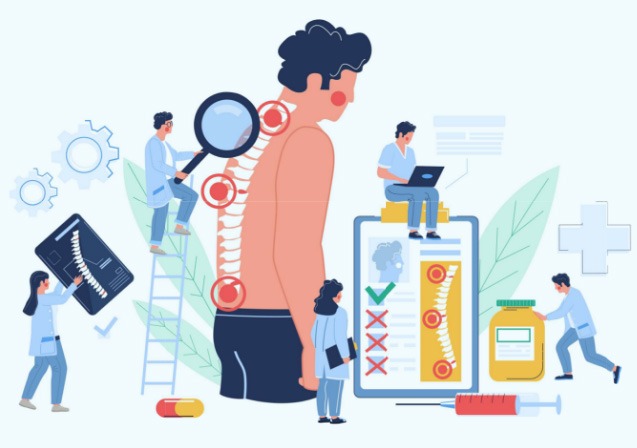Comprehensive Guide to Pain Management Treatments

Pain is a complex and multifaceted experience that can significantly impact an individual’s quality of life. At BMC Hospital, we understand the importance of effective pain management and offer a wide range of treatments designed to alleviate pain and improve overall well-being. This blog delves into the various aspects of pain management, the types of pain we treat, and the innovative solutions available at our hospital.
Understanding Pain
Pain can be classified into two main categories:
Acute Pain: This type of pain is often sudden and severe, typically resulting from injury, surgery, or an underlying medical condition. It usually lasts for a short duration and resolves as the underlying cause is treated.
Chronic Pain: Chronic pain persists for longer periods, often defined as lasting more than three to six months. It can stem from conditions such as arthritis, fibromyalgia, or neuropathy and can have a significant impact on daily life and emotional health.
The Importance of Pain Management
Effective pain management is crucial for several reasons:
Enhancing Daily Functioning: Persistent pain can hinder daily activities, from simple tasks to enjoying hobbies. By managing pain effectively, individuals can regain independence and improve their overall functionality.
Mental Health Benefits: Chronic pain can lead to anxiety, depression, and emotional distress. Alleviating pain can contribute to improved mental health, allowing individuals to engage more positively with their surroundings.
Reduced Healthcare Costs: Effective pain management can decrease the need for additional treatments and interventions, leading to reduced healthcare costs over time.
Pain Management Services at BMC Hospital
At BMC Hospital, we offer a comprehensive approach to pain management, which includes:
Medication Management:
- Non-Opioid Medications: We use NSAIDs, acetaminophen, and other non-opioid medications to manage pain with minimal side effects.
- Opioids: For severe pain, we may prescribe opioids while closely monitoring their use to prevent dependency.
- Adjuvant Medications: Antidepressants and anticonvulsants can be effective in treating nerve pain and enhancing overall pain relief.
Physical Therapy:
- Our physical therapists develop personalized rehabilitation programs to strengthen muscles, improve flexibility, and enhance overall physical function. Techniques may include exercises, stretches, and manual therapy.
Interventional Procedures:
- Nerve Blocks: Injections targeting specific nerves can provide immediate pain relief for conditions like sciatica or migraines.
- Epidural Steroid Injections: Used to reduce inflammation around the spinal nerves, providing relief for back pain and radiculopathy.
- Radiofrequency Ablation: A minimally invasive procedure that disrupts nerve signals to reduce pain.
Holistic and Complementary Approaches:
- We recognize the importance of treating the whole person. Our services may include acupuncture, massage therapy, and mindfulness techniques, such as meditation and relaxation exercises, to support emotional well-being.
Psychological Support:
- Pain can take a toll on mental health. Our team includes psychologists who specialize in pain management, offering cognitive-behavioral therapy and other supportive therapies to help patients cope with the psychological aspects of chronic pain.
Conclusion
Investing in pain management is essential for individuals struggling with chronic or acute pain. At BMC Hospital, we are dedicated to providing comprehensive, compassionate care tailored to each patient’s unique needs. Our team of specialists is here to support you on your journey to a pain-free life.
If you or a loved one is experiencing pain, don’t hesitate to reach out for a consultation. Together, we can develop a personalized pain management plan that helps you regain control and enhance your quality of life.

